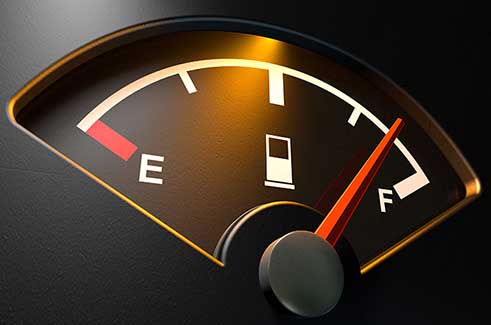Fuel consumption – travel cost calculator

Parameter, which largely determines the purchase of a car, is fuel consumption. This value can be found in every advertising brochure and in the instruction manual, which we get when buying a car. As a result, a number of misunderstandings arise, which many people meet more often, especially recently, when fuel prices in the country soar. So I consider it on purpose, how the fuel consumption records should be understood, given in the characteristics of the vehicle and what influence the driver has on its size.
At the outset, let's explain, the phenomenon of fuel consumption in the engine. Each internal combustion engine converts thermal energy into mechanical work. Thermal energy comes from burning fuels, which are mixtures of hydrocarbons derived from the processing of crude oil (gas, diesel, liquefied propane-butane gas, less often methane or compressed natural gas). Fuel consumption depends on the use of thermal energy, it means, that the overall efficiency of the engine – and this determines its economy, that is, fuel consumption, is the ratio of heat converted to useful work to the total amount of heat supplied to the engine.
The measure of fuel efficiency is its specific effective consumption, calculated in grams per kW / h. It specifies the amount of fuel in grams, per unit of work performed. The more efficient the engine is, the less fuel it uses to do the same job. Specific fuel consumption refers to consumption per unit of time and per unit of power. Np. if the specific fuel consumption is 250 g/kWh, means, that the engine wears out 250 g of fuel to produce 1 kW of draft power 1 hours.
The engine's job is to do the job, but it is not indifferent, at what cost it is done. This is why specific fuel consumption is a fundamental parameter, which characterizes the efficiency of different engines and is used to compare them. The specific fuel consumption depends on the type of drive unit and the degree of its load. As a rule, it obtains the lowest value, when the engine reaches its maximum torque.
More and more people ask us, how much fuel should their car use. The answer is not simple. Fuel consumption is primarily influenced by the efficiency of the engine, determined by unit consumption. Therefore, we emphasize the importance of this basic parameter determining the efficiency of the drive unit. This value, measured on a test stand and given in the engine characteristics, enables the engines to be compared in terms of economy. However, a number of other parameters also affect a car's fuel consumption: time, air resistance coefficient (the shape of the body, the so-called. Cx), rolling resistance, suspension solutions, selection of gear ratios of the gearbox and final drive. First of all, the technical efficiency of the vehicle. Fuel consumption also largely depends on the individual driving style, proper use of gears, the size of the accelerations obtained, driving speed, braking method, etc.. The road also has a great influence on fuel consumption, traffic, ambient temperature, condition and type of tires used.
In view of the above, to present the characteristics of the car, including fuel consumption parameter, manufacturers are required to measure fuel consumption according to the standard.